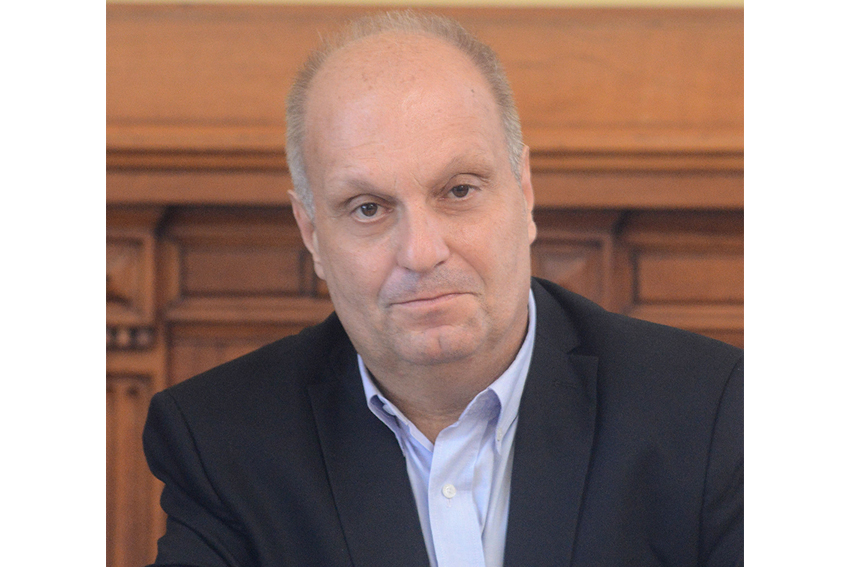With Argentina’s tumultuous political and economic history, the new government came to power on a pledge of building institutions to ensure long-term growth. Beyond opening to foreign investment, the governing Cambiemos coalition has noted the cultural change brought to mark Argentina’s new direction. As Argentina establishes its relationship with the world, it will re-emphasize its relationship binding its own society through its media content. Argentina’s state-owned media has had as difficult a history as its politics, mired in periods of either censorship or abuse by the government by using it as a political tool. Integral to the reform of the apparatus is the man at the top: Hernán Lombardi, who heads the System of Public Media Content and oversees state-owned media across public radio, television, and news outlets.

Argentina has made clear its opening to the global markets and international community, a move which has been well received in international forums and media. However, how are the Argentines themselves taking to this change?
Argentina is going through unprecedented cultural change. Citizens have chosen this change and the President’s Cambiemos political coalition is merely a reflection of this. The government is conscious of the fact that this change must permeate through all sectors of society to favor democratic institutions.
Argentines view the country’s opening to the world as a great challenge, but it is also an opportunity. Over the past 50 years, the nations which have been able to become part of the international community have improved the quality of life for their citizens, particularly those in the most vulnerable conditions. Both business leaders and the government know about this great opportunity; the challenge is for this concept to also be felt by the general public, particularly those of more difficult economic conditions.
Argentina wishes to sustain its economic growth through foreign investment, yet this has not yet transformed the economy.
The cultural change we are undergoing still has extraordinary potential. For example, the government has enacted a tax amnesty plan which has brought an unprecedented $130 billion into the formal economy – money that was previously stashed abroad. This is a great show of confidence that the Argentines themselves are placing in their own country. Not even European nations were able to bring in money of such magnitude before introducing the euro. This represents a vote of confidence in Argentina after just 15 months of the new government.
You were Minister of Culture for the city of Buenos Aires for eight years, and you have dedicated yourself to the promotion of culture as a means to stimulate economic growth. How can Argentina capitalize on its cultural aspect today?
Culture means not just concerts or a work of theater, but a resource stemming from the knowledge industries. Culture has an extraordinary development in Argentina, and we are counting on it for our future. The Argentine population is cosmopolitan, as our citizens descend from cultures around the world, and which peacefully coexist here. This makes our local culture strong and vibrant, and creates a niche for many industries, including video production. While the future of such an industry is unclear – as no one knows if the future content will be seen via televisions or cellphone screens – we are convinced that there is a great opportunity for Argentina content production.
When one looks at regional Spanish-language broadcasts, there is CNN en Español, Telesur, TVE. Is there a possibility for Argentina to become a player in this arena?
I see a great opportunity for our public media to expand to be on par with the world’s nations which invest in public media to develop a country brand. We are working hard on this, not only with our state media agency Télam, but with our public television provider TV Pública. This creates a platform from which we can globalize our culture and promote our country for both tourism and investment. This is the objective of public media throughout the world. Other global media are seeing the potential in Spanish-language content, with France 24 launching a Spanish-language network in September. We want Argentina to join this platform as well, with new media and technology.
As you took the helm of the System of Public Media Content, you were tasked with the Macri administration’s promise of making public media institutional, rather than a political advertising tool for the current government of the time. How have you been able to implement this objective?
We had to turn the public media apparatus upside-down. We came into office with a previous system of authoritarian populism. Argentine politics has always seen a certain tension between populism and modernity, but Kirchnerismo added authoritarian populism to the mix, which was a disaster for public media. Public media instruments from Télam, TV Pública, and the radio channels were used for political propaganda in a Goebbelsian way.
We turned it around. At every fanatical expression, we responded with republican values. Within TV Pública we have people who both agree with the current government and those who disagree. Argentina’s global integration will be achieved through solid republican institutions, where public media will be independent. It is no longer a vision of a current government, which would be short-term, but under the idea that we are building institutions.
Argentina is now 41 years beyond its crippling military dictatorship, and Argentina now integrates itself with the world as a symbol of a fledgling democracy, perfecting and consolidating its democratic institutions. The twelve years of Kirchnerismo halted this initiative, but the country is back on the global track.
We currently have the first generation of young people who have always had the right to vote, and it is the first time that over 50% of our electorate has never seen their right to vote denied. This gives validation to our process of global integration, with a pluralist society expressing diverse views.
Interview by Nicolas Carver, follow him on Twitter at @WorldTempo
0 COMMENTS